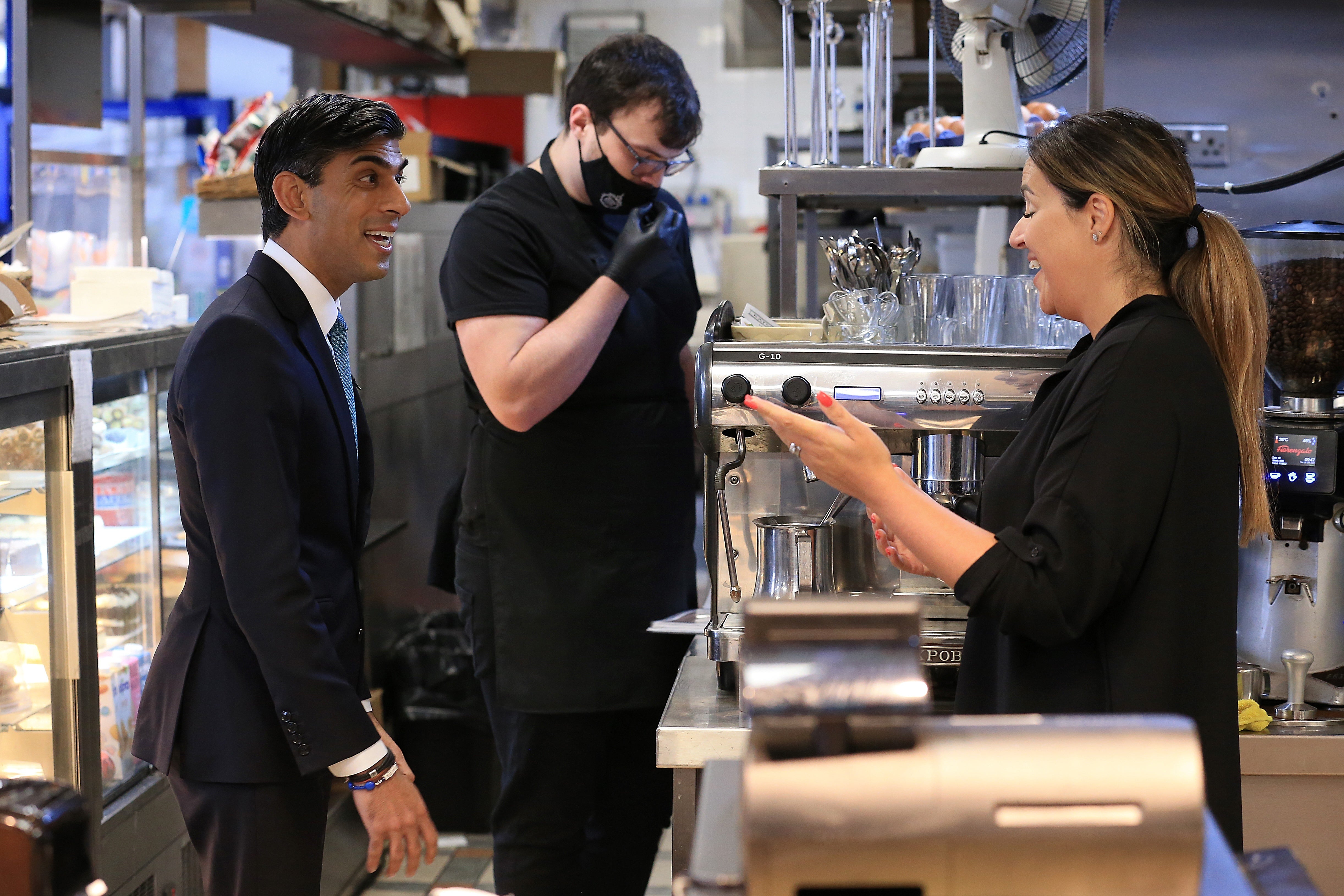Sunak appears to confuse northern towns Bury and Burnley during interview
Chancellor Rishi Sunak was being interviewed in Bury market when he made the slip-up.

Your support helps us to tell the story
From reproductive rights to climate change to Big Tech, The Independent is on the ground when the story is developing. Whether it's investigating the financials of Elon Musk's pro-Trump PAC or producing our latest documentary, 'The A Word', which shines a light on the American women fighting for reproductive rights, we know how important it is to parse out the facts from the messaging.
At such a critical moment in US history, we need reporters on the ground. Your donation allows us to keep sending journalists to speak to both sides of the story.
The Independent is trusted by Americans across the entire political spectrum. And unlike many other quality news outlets, we choose not to lock Americans out of our reporting and analysis with paywalls. We believe quality journalism should be available to everyone, paid for by those who can afford it.
Your support makes all the difference.The Chancellor appeared to become confused about which northern town he was visiting as he referred to Burnley rather than Bury in interview responses.
Rishi Sunak was speaking to broadcasters on Thursday about his Budget in Bury market but, during an interview with BBC Breakfast, referred to it as the “world famous Burnley market”.
It came after presenter Ben Thompson told Mr Sunak he was from Burnley, in Lancashire which is 20 miles north of Bury, Greater Manchester.
Mr Sunak, answering a question about the Government’s so-called levelling up agenda, said: “It is not just about being in the North by the way – we’re here in Burnley but if you are growing up in a village in the South West or even on the south coast, people want to feel opportunity is there for them, wherever they happen to be.”
He added that the Government’s so-called levelling up fund was providing £20 million of investment in “world famous Burnley market” – money that will in fact be going to Bury market.
During his post-Budget broadcast round, Mr Sunak defended cutting alcohol duty on champagne while simultaneously lowering taxes on domestic flights.
Labour accused the Chancellor of using his fiscal statement to give a “tax cut to bankers who like to take short-haul flights while sipping champagne”.
But Mr Sunak said he would make no apology for reforming the “irrational system” that saw champagne, prosecco and other sparkling wines taxed more than non-fizzy wine.
He told Sky News the change could bring the price of a £7 bottle of prosecco down by about 87p.
“I think that’s a good thing because everyone when something good happens wants to celebrate with a bit of bubbly and we’re actually going to remove the completely irrational duty premium that those drinks currently bear – they are no more alcoholic than still wine but they pay a lot more duty,” Mr Sunak said.
The Treasury chief also stood up for the decision to slash air passenger duty (APD) on domestic flights, a move that has been criticised given the UK is due to kick off the key Cop26 climate summit in Glasgow this weekend in the hope of securing an agreement on lowering global emissions.
Mr Sunak on Wednesday announced a 50% cut in APD for flights within the UK while establishing an increase in the tax for those flying more than 5,500 miles.
The Office for Budget Responsibility (OBR) has forecast that it could lead to more than 400,000 extra passenger journeys a year, a 3.5% increase.
Challenged about the environmental impact of people choosing to fly rather than to take the train across the UK as a result, the Chancellor told the BBC that domestic aviation formed only a “tiny part of our emissions”.
“What we’re doing here is returning to a system we used to have before we had to get rid of it, which was not paying air passenger duty on both of the legs of a journey that you took within the United Kingdom,” he said.
“Aviation in general only accounts for about 8% of our overall emissions, and of that 8% a fraction – just 4% or 5% – comes from domestic aviation, so it is a tiny part of our emissions.
“So, yes, we’re doing this to support domestic aviation, and regional airports will benefit from this, but we are also introducing a brand new band for ultra long-haul travel.”
Shadow chancellor Rachel Reeves said cutting APD ahead of Cop26 was “astonishing”.
“We should be encouraging people to use our train network for those journeys,” said the Labour MP.